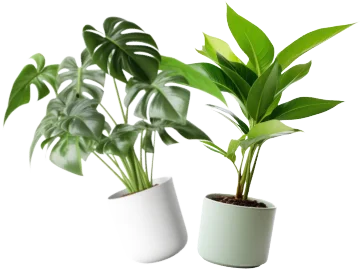
Design your dream garden today!
Get in touch with our expert garden designers for a quote.
Find out more

Having a garden means you need to know a thing or two about plant care. This is especially true for gardens that go through the season all year round. We’ve listed effective strategies and tips in this blog to guide you on garden maintenance in different seasons.
Summer
Summer brings intense heat and sunlight that are harmful to your garden. During this season, you need to pay more attention to your plants. Effective garden maintenance during summer ensures your plants are healthy and vibrant while you conserve water. Plus, proper maintenance during this season will promote resilience in plants against the heat.
Garden Maintenance in Summer
Below are the steps on how to maintain your garden in summer:
- Watering Schedule – Establish a consistent watering routine. Ideally, it should be early in the morning or late in the evening to minimise water loss through evaporation. You should also practice deep watering to encourage deep root growth, helping plants withstand dry spells. Use soaker hoses or drip irrigation to effectively deliver water directly to the roots.
- Mulching – Retain soil moisture and suppress weed growth by applying a layer of organic mulch, such as shredded bark or compost, around plants. Mulch is also helpful in regulating soil temperature and keeping roots cooler during hot days.
- Pruning and Deadheading – Regular pruning is a must in gardens, more so during the summer season. Prune dead or diseased branches to promote airflow and reduce stress on plants. On the other hand, deadheading (the removal of flowers from plants when they have faded or died) is encouraged to promote continuous blooming of flowers and prevent plants from expending energy on seed production.
- Fertilisation – Provide plants with the right nutrients with a balanced fertiliser. It’s important that the fertiliser is able to replenish nutrients lost due to rapid growth and frequent watering. Be cautious so as not to over-fertilise since this can burn plants in hot weather.
- Pest and Diseases Control – Make it a part of your routine to check for signs of pests and diseases that generally increase in warm, humid conditions. However, it’s best to use organic pest control methods whenever possible to minimise harm to beneficial insects and wildlife.
- Shade and Protection – Provide shade for your plants that are sensitive to heat (e.g., Silver Lady Fern) to protect them from the harsh weather. Use a shade cloth to protect sensitive plants or plant taller species nearby to create a natural shade. Also, always make sure to protect young seedlings and transplants from direct sun until they become established.
Implement the strategies listed above for garden maintenance in summer and you’ll ensure that your garden will not only survive but also thrive during the hottest months of the year. With consistent care, proper watering, and attention to plant health, rest assured that you’re going to have a lush and vibrant garden throughout the summer season.
Autumn (Fall)
With cooler temperatures and changing leaf colours, autumn has arrived. And although the weather is not as harsh as winter, garden maintenance is still crucial. Other than making sure your garden stays vibrant and healthy during the season, autumn is the perfect time to prepare your greenery for the coming colder months.
Garden Maintenance in Autumn
Here’s how you should maintain your garden in autumn.
- Clean Up Debris – Remove fallen leaves, dead plants, and other debris from your garden. Doing so will prevent pests and diseases from overwintering. You can use a rake or leaf blower to gather leaves (which can be composted or used as mulch).
- Prune and Trim – The perfect season to prune trees and shrubs is in autumn. Take this opportunity to remove any dead or diseased branches to promote healthy growth in spring. But, remember to not over-prune since some plants may need their branches to protect them during winter.
- Mulch Your Garden – Apply a layer of mulch to your garden to insulate soil, retain moisture, and suppress weeds. Wood chips, straw, or shredded leaves are organic mulches that work best, breaking down over time to enrich the soil.
- Plant Autumn Bulbs – If you’ve been planning to add tulips, daffodils, crocuses and other spring-blooming bulbs in your garden, then autumn is the most ideal time of the year. Planting bulbs in autumn ensures they establish roots before the ground freezes which will lead to a beautiful display of flowers in the spring.
- Water Wisely – Despite cooler temperatures, your garden still needs adequate moisture. The strategy is to water plants deeply but less frequently; note that you’re focusing on the roots. Also, avoid watering in the late evening to prevent mould and mildew.
- Fertilise Appropriately – Use a slow-release fertiliser to nourish your plants throughout the colder season. Plus, it’s best to choose a formula that’s high in potassium to strengthen plant roots and improve their cold resistance.
- Protect Sensitive Plants – If you have tender plants, cover them with burlap, straw, or frost cloth to shield them from early frosts. For smaller plants, consider cloches or cold frames.
Autumn calls for the time to prepare your garden for winter. Take this time to clean up, prune, mulch, plant bulbs and a few other garden maintenance that will pay off when your garden turns out resilient in winter and vibrant in spring. With a little effort in autumn, your garden will stay healthy and thrive in the colder months.
Winter

For Australians who live in parts where it snows, garden maintenance becomes more crucial when winter sets in. Other than making sure your garden remains healthy during the period, you should also prepare it for the coming spring. And although the cold weather seems like the perfect time to take a break, winter brings with it several essential tasks to keep your garden in top shape.
Garden Maintenance in Winter
Below are the tasks to accomplish in your garden during the winter season:
- Garden Clean Up – You’re already familiar with this task back in autumn, so all you really need to do is keep it consistent. Cleaning up your garden will help prevent pests and diseases from taking hold during the colder months. Also, consider composting healthy plant material while disposing of anything that shows signs of disease.
- Prune and Trim – Remove any dead or damaged branches in your garden to ensure healthy growth in the spring. However, be careful with pruning flowering shrubs; only prune after they’ve bloomed (if they flower on old wood).
- Add a Layer of Mulch – Organic mulches will help insulate the soil and protect plant roots from freezing temperatures. Straw, leaves, or wood chips are great choices for mulch which also help retain soil moisture and reduce weed growth.
- Protect Delicate Plants – Some plants are sensitive to frost, so try using first cloths, burlap, or other protective covers. For potted plants, move them to a sheltered location, such as a greenhouse or indoors, to shield them from the harsh weather.
- Water Wisely – Plants will need less water in winter, but keep an eye on soil moisture all the same. Water your garden during ground spells. In fact, watering in the morning is best to give plants time to absorb moisture before temperatures drop at night.
- Plan for Spring – Make use of the winter months by planning your garden for the upcoming spring. It’s the best time to consider any new landscape projects or additional plants you want to have, even order seeds and make a planting schedule.
Garden maintenance in winter needs more care and vigilance, especially for the more sensitive plants. Plan accordingly and keep a close eye on soil moisture. Winter, just like summer, brings dry spells that could affect your plant’s health, so be vigilant.
Spring
The most delightful season for gardeners, spring offers a fresh start and the perfect opportunity to revive your outdoor space. It’s time for plants to awaken and, to guarantee you’ll have a thriving garden all throughout the season, you need to be vigorous with garden maintenance.
Garden Maintenance in Spring
Here are the essential steps and tips for effective garden maintenance in spring:
- Clean Up Debris and Prune and Trim – Start with the basics. Remove any debris accumulated over the winter, such as fallen leaves, dead plants and branches. Then prune and trim your plants, if you haven’t yet in the previous seasons, to promote healthy growth.
- Prepare the Soil – After a long winter, your soil will need some attention. Loosen the soil with a garden fork or tiller to improve aeration and drainage. Then, add organic compost or well-rotted manure to the mix to enrich the soil with essential nutrients it lost during winter. All these will provide a strong foundation for your plants.
- Plant New Seeds and Seedlings – Did you plan for new plants during the winter to plant in spring? Choose plants suitable for your region and climate and be sure to follow planting instructions for optimal growth.
- Apply Mulch – Retain moisture, suppress weeds, and regulate soil temperature with mulch. As always, it’s best to choose organic mulch since it decomposes over time and adds valuable nutrients to the soil.
- Water Effectively – Now that the weather’s warming up, watering should be more consistent. Schedule it early in the morning or late in the afternoon to reduce evaporation. Avoid overwatering. Instead, practice deep watering for strong root growth.
- Fertilise Regularly – Just like with watering, spring also means a more regular schedule when it comes to fertilising. Use a balanced fertiliser for essential nutrients to plants. Avoid over-fertilising by following recommended application rates.
With dedication and attention to detail in garden maintenance, your outdoor space in spring will be lush and thriving. Make sure to follow the tips above and your rewards will be well worth the effort.
Clearly, from the strategies and tips listed above, there’s not much of a difference in garden maintenance for different seasons. Cleaning debris, pruning and trimming, and applying mulch are some of the basics. Meanwhile, there are additional things to consider for some seasons such as watering schedules and plant protection (whether from the harsh heat or the freezing cold).
Garden maintenance is not overly complicated if you put into mind the health of your plants first and foremost. But if you’re looking for more gardening advice on plant care, check out Local Botanist blogs or connect with our experts for your queries. Plus, if you’re looking for a garden style that matches your preferences and will still look its best throughout the seasons, try taking the garden quiz and find out the best design for your home!

Transform Your Garden
Dreams into Reality!



